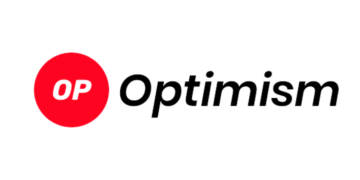On March 22, Offchain Labs, a blockchain research firm, disclosed significant security vulnerabilities in Optimism OP Stack’s fraud-proof system deployed on a testnet. However, these vulnerabilities allowed malicious actors to alter the chain’s history, a concern acknowledged by OP Labs on March 25.

While the testnet of Optimism was also updated on April 25 to address these security shortcomings and reinforce security. Moreover, Offchain Labs’s proactive approach, as shown by the proof of concept exploit code, supports collaborative safety efforts in the Ethereum ecosystem with various platforms. In contrast, the weaknesses detected denoted a system that was not able to separate the true from the false chain of history, the need for which was further affirmed by the significance of such security measures in preserving the system integrity.
Optimism Technical Safeguards
The Optimism fast-tracked the time-manager code within the system which has a fraud-proof feature to remove the detected weaknesses. A simple analysis using Offchain Labs highlighted the fact that the initial protocol setup was vulnerable to “traitor attacks” where dishonest people could unfairly sway the dispute. Similarly, these discoveries provoked a review of time management issues, and that led to the implementation of the necessary measures aimed at preventing similar weaknesses in the future.

The collaboration between Offchain Labs and Optimism highlights the collaborative nature of defense mechanisms in the Ethereum blockchain sphere. Offchain Labs noted the complexity of addressing blockchain issues such as fraudulent protocols and their temporal aspects. However, their efforts in identifying these vulnerabilities not only assisted Optimism but also shed light on potential security challenges for other Layer 2 solutions.
Efforts to Strengthen Ethereum Layer 2 Infrastructure
This discovery by Offchain Labs highlights the teamwork ethic that safeguards the Ethereum blockchain. They pointed out the inherent challenges in designing fraud-proof protocols, especially concerning timing. Their proactive detection of these weaknesses not only bolstered Optimism’s security but also offered valuable insights into potential risks plaguing other Layer 2 solutions.
This incident underscores the critical role of peer review and collaborative security checks within the blockchain industry. Offchain Labs and Optimism serve as prime examples – companies working together, sharing findings, and plugging security holes. This collaborative effort ultimately strengthens the overall security and stability of Ethereum’s expanding Layer 2 infrastructure.
The idea of optimism was also echoed, it was a way to show gratitude for the teamwork. They emphasized the significance and worth of external audits on testnet prototype release. Thus, performing an audit is a critical step as it enables early detection and fixing of the security problems before the system is put into operation and catastrophe occurs.













